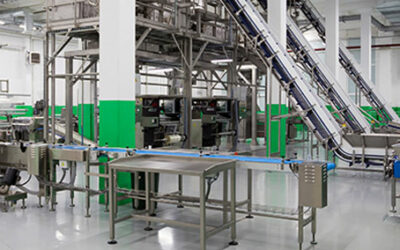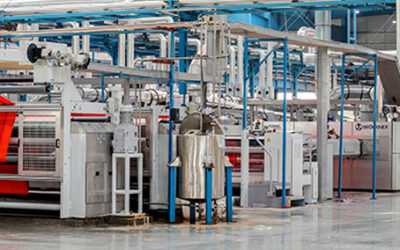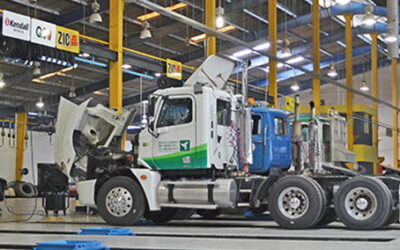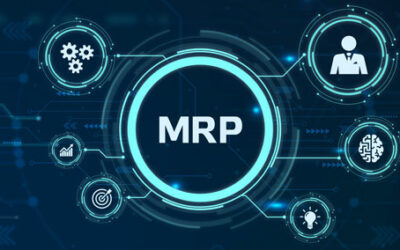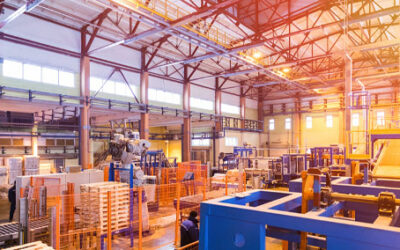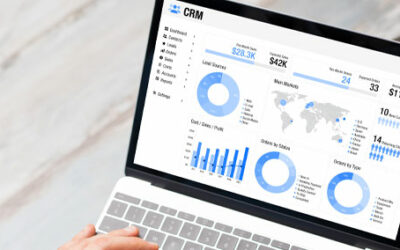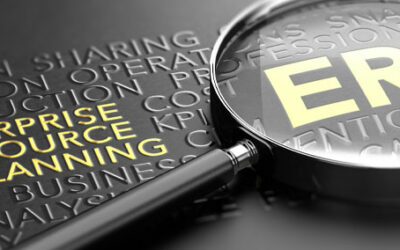Streamlining Email Delivery of Invoices, Credit Memos and Statements In Plex UX Daily, weekly, and monthly delivery of customer invoices, credit memos, and statements is a time-consuming process for all companies regardless of company size. Limited email document...
The Revolution Group Blog
Expert Insights to Revolutionize Your Business
At Revolution Group, our cutting-edge managed IT and Plex ERP solutions empower businesses to harness the power of technology, transforming their operations and unlocking new-found potential.
We invite you to stay tuned to our blog as we dive into the latest trends, share expert insights, and showcase how our comprehensive services can help revolutionize businesses like yours!

Automated Line Replenishment: Newman Technology
Join Revolution Group and Newman Technologies for this webinar on Automated Line Replenishment to MES/ERP provider, Plex Smart Manufacturing Platform. Questions? Reach out to us at [email protected]. Recent IT Articles
Passthrough Parts Using Turnaround EDI
Join this discussion to learn more about Passthrough Parts Using Turnaround EDI specific to MES/ERP provider, Plex Smart Manufacturing Platform. Questions? Reach out to us at [email protected]. Recent IT Articles
Leading People Through Change
Join Karen Patterson of Revolution Group and Keith Malcolm of JIC to learn some simple techniques one manufacturing firm used to ensure change adoption and an event free ERP implementation. Rebecca Ansley with the Project Management Institute will share insight on...
Food and Beverage Manufacturing: Make More With Less
Join Revolution Group, Plex Smart Manufacturing Platform, Barrett Petfood Innovations and Drinkworks for this webinar on Food & Beverage Manufacturing. Questions? Reach out to us at [email protected]. Recent IT Articles
Data Accuracy with Plex
Dictionary.com defines information as knowledge gained through study, communication, research, instruction, etc., all of which is derived from factual data.
Managing Your Business Remotely In The Cloud
The internet has introduced new ways of doing business for many industries and manufacturing is no exception. Gone are the days of bulky servers and cumbersome ERP packages. It is now possible to manage your entire operation via a web browser, smart phone, or tablet. Cloud-based ERP solutions are one of the fastest growing segments within the IT industry. In manufacturing, we see a notable shift from on-premise ERP to cloud-based ERP. These new solutions come with a wealth of options, features, and benefits.
Automating Critical Business Processes with Workflow
Proper workflows are essential to maximizing your Plex Smart Manufacturing Platform experience. Many customers have not fully explored the benefits that workflow can provide to their organization. For example, one recent customer was not using workflow as part of their purchase order process. Employees with access to the purchase order module were able to freely place a purchase order in an on-order status without any governance. Unfortunately, for this customer, an employee abused this freedom and created fake purchase orders to benefit themselves.
Lack of “Tone at the Top” Will Kill Your ERP Project
As a Project Manager deploying systems for over seven years, I can confidently say that one of the top killers of ERP projects is lack of leadership. ERP projects cannot be treated simply as an “IT initiative” for which only a handful of select people are accountable. These projects should be considered a company-wide operation, led by executives with the goal to optimize your business and lead you into a more competitive future. To do this, what’s known as “tone at the top” is crucial to your ERP success.
Continuous Improvement In The ERP Environment
Continuous Improvement (CI) seems like a straight-forward concept, but what’s the best way to do that in an ERP environment and why should you consider it? At its most basic level, CI is a way to prioritize smaller projects and initiatives with incremental steps that improve your business processes and the use of the system. It maintains ongoing progression and forward movement. And with that series of smaller improvements, momentum and an attitude to take on more are generated.
Simplifying Your ERP Decision Process
I was recently at dinner with a client when he asked the people at the table, “Is cheesecake a cake or a pie?” We all had a good laugh while people pondered. He encouraged us to not overthink this lofty question and just “go with (our) gut.” But, it was hard not to give this one some more serious and deep consideration. Trust me on this – I spent more time than I care to admit searching for the correct answer on Google.
Real Time Inventory: Is it Worth the Effort?
It’s late Sunday afternoon and you suddenly remember tomorrow is your anniversary. You have the perfect gift in mind, but you have one opportunity to get it before the store closes. Real Time Inventory is a relatively new concept, offering an increased level of convenience and transparency between customer and retailer. As someone who has worked in ERP for many years, I’ve seen the transition from pen and paper inventory to day-old information to the real time inventory offered today.
Standard Cost: Benefits and Disadvantages
Is your manufacturing operation using Standard Cost or Actual Cost to value production costs? Are you wondering what the benefits would be if you switched to a Standard Cost valuation of the production of your products? In this blog post, I’ve listed the advantages and disadvantages of using Standard Cost to help with your analysis. Many manufacturing entities utilize the Standard Cost system instead of the Actual Cost system to reduce the tracking requirements for purchases, labor, and overhead.
The Value of Inventory Traceability
As an ERP and business consultant, I am often asked about the value of and need for inventory traceability. Inventory traceability is the ability to trace products and materials through the supply chain. For manufacturers, this feature is of particular concern. Manufacturers need the ability to trace the components and materials used in their finish products back to the source from which they came.
Inventory Accuracy
Inventory Accuracy is the relationship of physical inventory compared to stated inventory. To put in the simplest terms: “Do I actually have what my systems tell me I have?” Inventory accuracy can be managed using spreadsheets or in any system with a method of tracking and monitoring inventory levels. Inventory accuracy is crucial in any industry and affects the day to day operations of the entire business. Do you have what you need to make your product?
Maximize Growth and Efficiency In Your Organization with ERP
In today’s business world, companies are driven by the need to make quick, well-informed decisions. All levels of the organization rely on high quality, readily available data. A good ERP system can provide the data needed to make those decisions and optimize operations, sales, and supply chain functions and maximize efficiency, growth, and profitability.
ERP Project Recovery
It’s safe to say that ERP projects don’t always go as planned. Whether it’s scope creep, changing business requirements, or lack of buy-in, specific actions are needed when a project gets off track. Most issues with ERP projects are not caused by the software’s functionality. So, where do you start?
Benefits of ERP
Today, ERP systems integrate all manufacturing and business processes, from production and inventory management to accounting and finance. When properly implemented, an ERP system can encompass every facet of the organization. This gives management the ability to see what is happening in “real time” across the entire organization.
“Before and After” an ERP Implementation
A new ERP solution can be the inspiration for sustainable improvements and long term success. Many organizations are considering new ERP solutions to transform their inefficient business processes, improve operations, scale for growth, meet customer requirements and save or reallocate funds. Today, your organization may suffer from a lack of access to data. ERP solutions integrate back office processes with shop floor processes, providing a real time single version of the truth.
ERP Systems Benefits to Financial Management
When you hear the term “ERP systems,” production, inventory and quality may come to mind. Few of us would consider financial records or variances because we don’t tend to make the connection between an ERP system and the benefits offered to the company’s financial management system. While an ERP system helps improve departmental productivity and effectiveness, it also offers tools to improve and simplify a company’s finances.
Strategic vs. Transactional Procurement
Having led numerous deployment projects as an ERP consultant, I work with organizations to optimize the use of their software and make their business processes more efficient. I’m constantly shocked by the lack of importance placed upon the procurement function within many of these organizations. In my multitude of discussions with purchasing department employees, I find a majority to be very comfortable with, and dare I say, dependent upon, tedious buying transactions.
The Right ERP Solution, Relief for our Processes Aches and Pains
Do you feel you get the job done, but your processes are not without some aches and pains? Does your organization struggle with a lack of control with new part introductions? Have you been wanting, just not sure where to start, to implement robust cycle counting of inventory? Maybe it takes far to long for you to process a new order through your business or you experience break-downs in communication between sales and manufacturing.
How to Improve Inventory Accuracy on the Production Floor
Do you feel as though the production floor is your worst enemy in the mission for inventory accuracy? This leading cause of frustration and stress around inventory management often comes from a lack of investment and standards on production floors. Inaccurate inventory impacts the ability to deliver customers their parts, borrow money for capital and raw material needs, and produce profits.
“The Big Three” of MRP. Material Requirements Planning
MRP – Opening the Black Box Material Requirements Planning can seem like a mystery on how it does its magic behind the scenes. Let’s consider how you can help it work more efficiently and understand why it’s giving you the data it does. MRP is based on “The Big...
Manufacturing Process Methods Compared – When to Apply Master Schedule
We can generally sort Manufacturing Business processes into three groups: Make to Order, Assemble to Order, and Make to Stock. Make to Order is also known as custom build. Assemble to Order is used in repetitive manufacturing. And Make to Stock covers mass production of end products. Let’s look at each one and see where to apply scheduling and planning tools for the best order to fulfillment timing.
A Brief History of MRP – Materials Requirements Planning
Thousands of years ago, when someone needed something, they had to build it themselves. Through the generations, some people began to be recognized for their skills in building and they were asked to build things for other people. A business was born. Eventually, these new businesses got very busy and, in order to maintain their demand, they had to establish priorities in their current processes.
How ERP and Your Baby are the Same
My wife always teases me about being the ‘King of Analogies.’ That doesn’t keep me from attempting to draw parallels between unrelated things. Lately, I have been thinking about the similarities between an ERP project and having a baby. Obviously, two entirely different activities, but indulge me in some uncanny similarities. Here is my take on how ERP and your baby are the same.
Who Benefits from ERP?
An ERP system manages business information by integrating data across functional groups within an organization. Modern manufacturing ERP systems offer numerous benefits because linking your organization increases efficiency and quality, lowers costs, and provides greater organizational flexibility and decision support. Who benefits from ERP? Let’s look at how various departments can tap into the potential of ERP.
The Benefits of Integrating CRM and ERP
In today’s modern manufacturing industry, many companies employ two systems to ensure their business and production processes run effectively – a Client Relationship Management (CRM) system and an Enterprise Resource Planning (ERP) system. Often, these two systems run separately, but there are many benefits of integrating CRM and ERP.
Kanban and ERP
It is a common misconception in manufacturing that Kanban methodology is at odds with ERP. After all, Kanban is a ‘pull’ system that pulls inventory through production as it is needed. In contrast, traditional ERP is a PUSH system that pushes inventory into a warehouse for stock. But, today’s modern ERP solutions are far more nimble and work in harmony with lean manufacturing principles like Kanban to reduce inventory, generate real-time data, and streamline processes.
Project Management Tips
Project management is the engine that keeps great projects moving along. As an ERP consultant, I’ve worked with many project managers to successfully implement new ERP systems within their companies. Here are my project management tips to help you succeed.
ERP Selection Roadmap
When selecting an ERP system, there are multiple decisions and numerous factors to consider. Where do you begin and what are the important criteria elements that you need to know before you start? Our team of ERP experts have put together an ERP Selection Roadmap to help guide your journey. This useful resource will assist you as you try to determine the best ERP solution for your business. Follow these 10 steps, and you will discover the ERP solutions that best fits your needs.
Manufacturing Intelligence
Manufacturers today are seeking technology solutions that optimize complex processes, reduce costs and give them more control. Intelligent analytics or ‘manufacturing intelligence’ offers the key to solving many of these problems. Pulling meaningful analytics from your ERP system can give your company the ability to make smarter decisions and propel your business forward.
What is ERP?
ERP is an acronym for Enterprise Resource Planning. It is a methodology for effectively running a business and is comprised of multiple essential processes within a company. Today, ERP is commonly associated with software programs, but Enterprise Resource Planning is broader than software and actually pre-dates today’s modern ERP systems. At their core, ERP practices are about managing a company’s human and capital resources.
Modern ERPs Impact on Supply Chain Management
It is estimated that most companies spend up to 25% of their budget on supply chain management costs. The flow of information, materials and dollars across a complex supply network presents many challenges. Efficiently managing activities and processes to meet customer demand can be difficult. And, most companies realize that there is a huge opportunity for improvement in managing their supply chains.
ERP Tailored to Fit Your Needs
The goal of every Enterprise Resource Planning (ERP) selection project is to identify the ERP solution that best suits the company’s needs, gives the company a competitive advantage, and provides the level of flexibility to support changes in strategy and growth. With today’s modern ERP solutions it is now possible to achieve ERP tailored to fit your needs.
3 Big Benefits of Modern ERP
To be competitive in today’s global economy, manufacturing companies need to streamline processes, cut costs, and improve efficiency. Many manufacturers are achieving these business objectives by implementing new ERP solutions. Modern ERP can usher in a new way of doing business for your company with tangible benefits that impact your bottom line. Here are 3 big benefits of modern ERP you will see after deploying a cloud-based solution.
The Case for Cloud
Cloud-based ERP solutions are one of the fastest growing segments of the IT industry, and in manufacturing, we see a notable shift from on premise ERP to cloud-based ERP. In a cloud solution, your software, data, and related infrastructure are hosted remotely and accessed via the Internet. Why is the case for cloud so strong? Because cloud ERP offers significant benefits over traditional ERP.
What are ERP and MRP?
More and more, we see acronyms replacing industry terminology. In manufacturing, acronyms like ERP or MRP are part of everyday conversation. What are ERP and MRP? Director of Manufacturing ERP Services, Pat Welsh, defines ERP and MRP, and explains how they are critical to successful manufacturing.
6 Components to Successful Project Management
A successful ERP implementation requires effective project management. Like any complex project, you will need proven processes and techniques to guide your work. In today’s blog, we outline 6 of the major components to successful project management.
4 Keys to Aligning Your Business Strategies and Your ERP Strategies
Technology is transforming the way we do business from consumer goods to industrial machinery. As the manufacturing environment becomes more and more complex, businesses are examining their system processes to determine if it’s time to upgrade their ERP. In today’s blog, we highlight 4 keys to aligning your business and your ERP strategies. These tactics help to ensure your ERP system will meet your business needs now and in the future.
ERP Wish List – What Manufacturers Really Want
Functionality tops the list as the most important factor in selecting an ERP system, followed by ease of use. Cost of ownership plays a large roll in the selection process, as well as how easily the solution can be implemented. Manufacturers are also looking for solutions that off integration across their enterprises. Finally, time to value finishes up our wish list of what manufacturers are looking for in an ERP solution.
5 Important To-Do’s BEFORE Talking to ERP Vendors
The process of selecting a new ERP solution can be a daunting task and with so many options, features, and vendors to choose from, starting the process can seem overwhelming. In today’s blog, we highlight 5 important to-do’s when started your search for a new ERP system. Taking these steps before calling your first ERP vendor will help your search run smoothly and achieve great results.
The Value-Add of ERP Consulting Services
Value-add is a common phrase in today’s business world, but it’s also an important question. As manufacturers investigate new technologies and look to implement ERP solutions, they often ask value-add questions about third-party consulting companies. Executives wonder if it is worth it to bring external consultants in to manage their projects or help them with the challenges that come with growth, competition, and globalization. What is the value-add of partnering with an ERP consulting firm?
Why ERP Implementations Fail
In one of our recent webinar “Leading People Through Change,” Revolution Group was asked: Why ERP implementations fail and what proactive steps do you recommend to get ahead of these? Since this is such a great question, we asked our one of our ERP consultants Mario Lopez to address it in a blog.
Learn the Ins and Outs of Cloud ERP
Cloud-based ERP solutions are one of the fastest growing segments within the IT industry. These new solutions come with a wealth of options, features and benefits. What does Cloud ERP look like? In this blog, we outline the key features in 8 areas that differentiate cloud ERP.
CSI for Your ERP System
With the preponderance of crime investigation shows on television, it seems we have a fascination with the use of technology to determine the nature of a crime, its time and place of occurrence, and ultimately, the culprit. Now imagine the chief investigator stating, “After days of investigation, we have come to the conclusion that a crime took place within the last three weeks by somebody in the afternoon. We still do not know how many victims may be involved.” Obviously, that response would not be acceptable.




